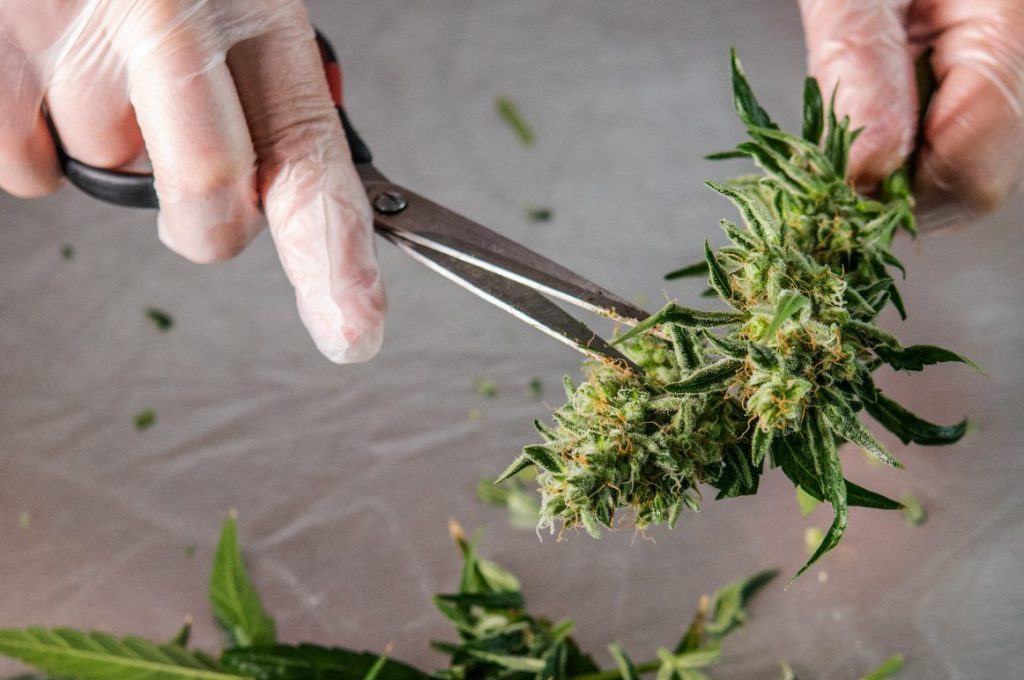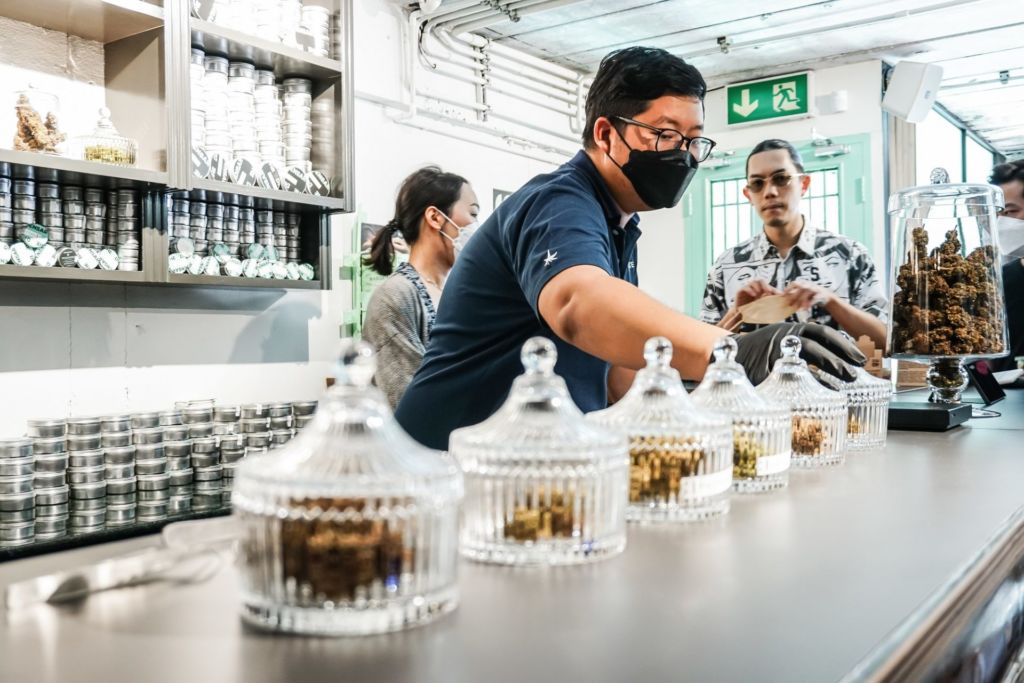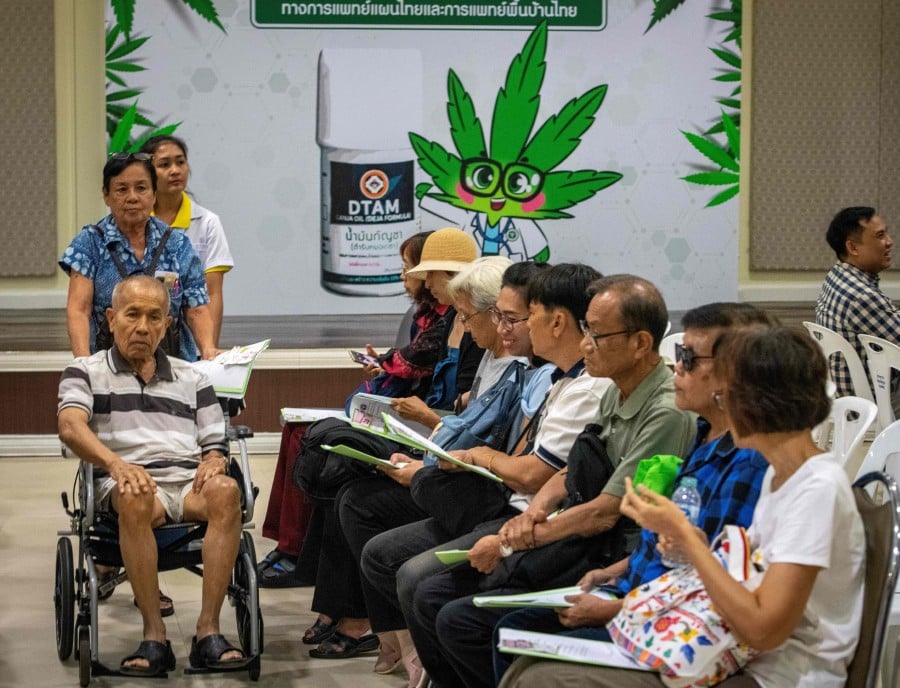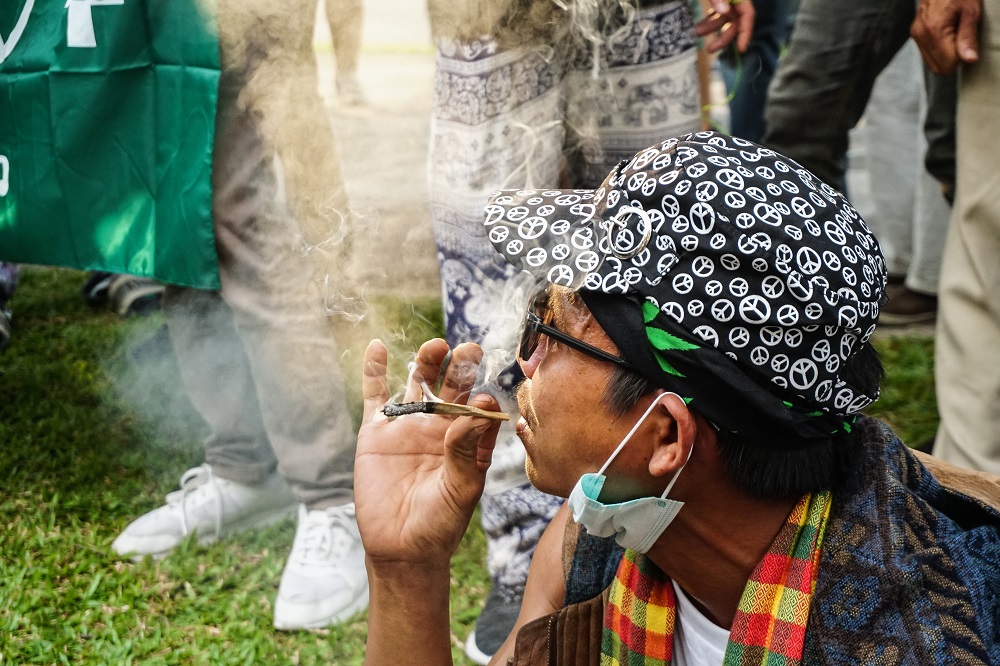Since Thailand essentially legalized cannabis in 2022, the number of people considered addicted to the drug by health authorities has nearly quadrupled, sparking a wave of political finger-pointing.
The Thai government removed medical marijuana from a list of narcotics prohibited from use or distribution in June 2022, making it legal for medical and culinary purposes. To stop drug abuse, policymakers imposed several safeguards, including a ban on sales to pregnant women and those under the age of 20. Marijuana smoking is also prohibited in public places.
However, ensuring that marijuana is used for medical rather than recreational purposes has proven difficult, with authorities struggling to enforce the amended laws.
Marijuana use at a young age has been linked to impaired learning capacity. According to experts, long-term drug use may result in psychiatric disorders and an inability to function in society.
According to the Ministry of Public Health, there were 72 recorded cases of marijuana addiction per month in the first five months of 2022 before decriminalization. Between June and November, the number of cases increased to 282.

Marijuana addicts accounted for roughly 17% of psychiatric patients requiring intensive care last year, a five-year high sign that the drug’s legalization may have put additional strain on hospitals.
Anutin Charnvirakul, Thailand’s public health minister who pushed for marijuana legalization, said marijuana dispensaries would not be allowed to display advertising for their products. Despite this, several shops continue to display signs with cannabis leaves.
Marijuana decriminalization has also led to an increase in its use among foreign tourists.
The Japanese embassy in Thailand has warned Japanese citizens that possessing marijuana within the country would violate Japan’s anti-marijuana law. Despite the warnings and similar notices from other foreign embassies, foreign tourists constituted “80% of customers,” according to a proprietor who manages over 20 dispensaries in Thailand.
The marijuana debate has heightened tensions within Thailand’s ruling coalition. Thailand’s Democrat Party has called for the drug to be criminalized again, opposing the Bhumjaithai Party, a coalition member who has advocated for its legalization.
The Democrat Party was once Thailand’s dominant conservative political force. However, following the Bhumjaithai Party’s victory in the 2019 general election, the Democrat Party has since lost ground. The Bhumjaithai Party is led by Anutin, who also serves as deputy prime minister.
The Democrat Party’s calls for marijuana prohibition suggest it is attempting to broaden its political base among conservative voters.

The government conceded by reclassifying cannabis buds as a controlled substance, but this has not affected marijuana use. A photo of 9- and 10-year-olds smoking marijuana outside that circulated on social media in December prompted officials to be chastised for taking too long to intervene.
Despite calls to outlaw marijuana, Thailand’s cannabis cultivation industry is expanding. According to the Thai Chamber of Commerce, the domestic cannabis market is on track to reach 42.9 billion Thai baht ($1.27 billion) in 2025, up from 28.1 billion baht in 2022.
Hundreds of businesses in Thailand exhibited a wide range of cannabis-based products, including drinks and cosmetics, at Thailand’s first-ever marijuana expo in Bangkok last November.
According to Pascal Evers of Grow. Help, an Estonia-based collective of weed cultivation advisors, Thailand’s weed decriminalization has garnered global attention. Evers said that if neighboring countries legalized marijuana, it would open up many new business opportunities.

Meanwhile, Thailand’s Development of Thai Traditional and Alternative Medicine, has announced that Thai nationals seeking to purchase cannabis buds will soon be required to show their ID cards, with sales information being recorded on a government database (DTAM).
Thongchai Lertwilairattanapong, director-general of the department, said he had signed the directive, which would take effect once it was published in the Royal Gazette.
It is unknown whether foreigners seeking to purchase cannabis buds will be required to show identification such as a passport. A recent health ministry publication, “10 Things Tourists Should Know About Cannabis in Thailand,” makes no mention of any requirement.
The requirement is the most recent in a series of ad hoc regulations enacted to address concerns raised since cannabis was removed from the federal narcotics list in June of last year. A law to regulate the sector is still being debated in Parliament and may not be passed before the House adjourns before the election later this year.
Dr. Thongchai stated that under the new rule, registered shops would be required to submit sales and purchase reports to the department, which would hire a firm to write a computer program to track sales and purchases.
Registered vendors will be able to insert buyer ID cards into a device linked to the department’s system and input information about the number of cannabis buds purchased. He stated that if they do not submit their reports to the department, their licenses will be revoked.
According to Dr. Thongchai, over 7,000 shops have applied for permission to sell cannabis buds.
Authorities have emphasized that the primary goal of cannabis decriminalization is to promote medicinal uses and to create economic opportunities for people who grow and process the plant. However, recreational use has skyrocketed, which appears to have taken policymakers by surprise.

The DTAM is still researching the many potential applications of cannabis, marijuana, and kratom, but they are not currently on its “herbal champion” list. Dr. Thongchai stated that three of the 15 herbs are ready for the herbal development chain, while the remaining 12 are in the second tier, including cannabis, marijuana, and kratom.
Many cannabis-based products are used for the same treatments, but more research is needed to develop cannabis-based medicine, he added.
Some politicians and civic groups have called for cannabis, or parts of the plant, to be reinstated on the controlled narcotics list, fearing that recreational use will become out of control.
However, according to Dr. Thongchai, doing so would create barriers to the development of medical applications.
The Ministry of Public Health announced last month that cannabis buds would be sold by more than 5,000 licensed vendors across the country, with vendor and buyer information being sent to the International Narcotics Control Board as part of an effort to regulate sales.
Thailand Issues 10 Step Guide on Cannabis to Tourists






